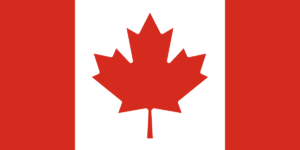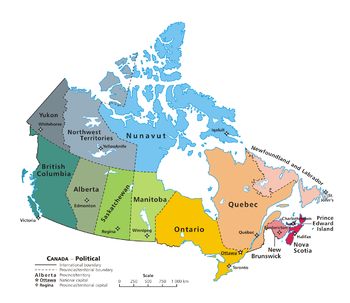Introduction
It is very commonly known that many international students wish to stay and obtain Canadian work experience after completing their post-secondary education in Canada. After they complete their studies in an eligible program at an eligible Canadian post-secondary institution, such international student graduates can apply for a Post-Graduation Work Permit, to allow them to work in Canada.
In its effort to retain such international students, IRCC (Immigration, Refugees, and Citizenship Canada) operates a Work Permit Program. As per this program, international graduates can apply for and get a three-year open work permit, allowing them to work for any Canadian employer in any industry. Please note that these students are not required at all to have some Canadian job offer at the time of their application.Please also read our latest blog posts:
- https://theglobalexposure.com/student-direct-stream-visa-for-canada/
- https://theglobalexposure.com/overseas-studies-immigration-services/
- https://theglobalexposure.com/most-common-reasons-for-visa-rejection/
Having understood the above, let us now see the various Eligibility Criteria for a Post-Graduation Work Permit very carefully:
 a. The student must have continuously studied full-time in Canada in a study program at least eight months long
a. The student must have continuously studied full-time in Canada in a study program at least eight months long
OR
b. The student must have studied in a private post-secondary institution that operates under the same rules and regulations as public institutionsOR
c. The student must have studied in a private secondary or post-secondary institution (in Quebec) offering qualifying programs of 900 hours or longer leading to a Diploma of Vocational Studies or an Attestation of Vocational Specialization
OR
d. The student must have studied in a Canadian private institution duly authorized by a provincial statute for conferring degrees (i.e.bachelor’s, master’s, doctorate), but only if the student is enrolled in one of the programs of study leading to a degree, as authorized by the province, and not in just any program of study offered by the private institution.About the Canada VISA Study Hub:
For your information, this exclusive Visa portal provides international students and graduates in Canada access to a $500 scholarship contest, personal status checker, immigration notifications, various news updates and job opportunities, the pathway to Canadian permanent residence, etc, etc. So why wait? Join the Study Hub immediately and apply for a work permit within 90 days of receiving written confirmation from your academic institution that you have met the requirements of their program; you have completed and passed the selected program of study and have received written notification from the effect that you are eligible to obtain their degree, diploma, or certificate; and that you have a fully valid study permit while applying for the work permit. All potential applicants must note that the study program must be of a minimum of two years to obtain a three-year work permit. Incidentally, if the program was of less than two years but longer than eight months, the student can still get a work permit for the same duration as the program of study. In particular, cases if a student has obtained a one-year degree/diploma from an accredited educational institution within two years of having successfully completed a previously accredited Canadian post-secondary degree or diploma, then he or she can qualify for a three-year open work permit. Further, in case a student fulfills all the requirements except full-time study in the final session of their program, the student can still apply for the Post Graduation Work Permit Program. Let us say a student only needs two courses in the final session to complete his program but all his previous studies have been a full time, he or she can still apply for an open work permit. We recommend and suggest that for more information, students may refer to the FAQs page of the Post-Graduation Work Permit. For any further questions related to staying and working in Canada once your studies are completed, kindly contact us without any hesitation. Some important FAQs are– Medical Examinations FAQs Study in Canada FAQs. You can also read related articles about the following topics: Looking For Work In Canada, Employment Interviews and Human Rights, International Experience Canada program, Finding a school In Canada, working and studying in Quebec, etc.
You can also read the latest news about the following fact: The Government of Canada conducted its first Express Entry draw of 2019 on 10th January, and issued 3,900 invitations to apply for Canadian permanent residence to candidates with scores of 449 or above. Here is an interesting piece of news headline dated December 10, 2018, from Study International Staff: “Removing the barriers for international students to work and settle in Canada. International students are arriving on Canadian shores in record numbers. In recent years, they have been “pouring” into Canadian universities while old favorites like the US and UK, are seeing the opposite trend. Canada has now become the go-to study abroad destination for its very friendly immigration policies and welcome approach towards the foreigners.
Often you may find bad news about the issues like “international students facing numerous barriers in getting jobs and seeking permanent residence status” and “international students who wish to work in Canada temporarily have difficulty in getting employment because of limited co-operative education opportunities and a lack of professional networks”. However, keep your morale up and keep pursuing your ultimate goal.
Here is an important news clipping titled The Eyeopener @theeyeopener —
“It’s a student’s responsibility to maintain his/her legal status. Mostly students are themselves responsible for problems”.
“Keeping proper documents, proper civic permits, etc is really up to them.”
You can also read related articles about the following topics: Looking For Work In Canada, Employment Interviews and Human Rights, International Experience Canada program, Finding a school In Canada, working and studying in Quebec, etc.
You can also read the latest news about the following fact: The Government of Canada conducted its first Express Entry draw of 2019 on 10th January, and issued 3,900 invitations to apply for Canadian permanent residence to candidates with scores of 449 or above. Here is an interesting piece of news headline dated December 10, 2018, from Study International Staff: “Removing the barriers for international students to work and settle in Canada. International students are arriving on Canadian shores in record numbers. In recent years, they have been “pouring” into Canadian universities while old favorites like the US and UK, are seeing the opposite trend. Canada has now become the go-to study abroad destination for its very friendly immigration policies and welcome approach towards the foreigners.
Often you may find bad news about the issues like “international students facing numerous barriers in getting jobs and seeking permanent residence status” and “international students who wish to work in Canada temporarily have difficulty in getting employment because of limited co-operative education opportunities and a lack of professional networks”. However, keep your morale up and keep pursuing your ultimate goal.
Here is an important news clipping titled The Eyeopener @theeyeopener —
“It’s a student’s responsibility to maintain his/her legal status. Mostly students are themselves responsible for problems”.
“Keeping proper documents, proper civic permits, etc is really up to them.”
- A report by the Canadian Federation of Independent Business (CFIB) found that there was a record of 399,000 vacancies in the private sector alone by the last quarter of 2017 – an increase of three percent from the previous year. Canada’s Global Markets Action Plan makes it a priority to grow international student numbers from “239,131 in 2011 to more than 450,000 by 2022” to generate over CA$16 billion by 2022, and to allow the government to “strengthen the economy through locally educated, skilled labor”.
Canadian Language Benchmark (CLB)
This is the Canadian standard used to describe, measure, and recognize the English language ability of adult immigrants and prospective immigrants who now plan to live and work in Canada or apply for citizenship. See the tables about your Language Skills in NOC.Canadian Language Benchmark (CLB)
This National Occupation Classification (NOC) code is nothing but a list of all the occupations available in the Canadian labor market. It describes each job in detail according to its skill type and level. Please note that for immigration purposes, the following are the main job groups:- Skill Type 0 (zero): Management Jobs
- Skill Level A: professional jobs that usually call for a degree from a University
- Skill Level B: technical jobs and skilled trades that usually call for a College Diploma or Training as an Apprentice
- Skill Level C: Intermediate jobs that usually call for High School and/or Job-specific Training
- Skill Level D: Labour jobs that usually give on the job training.
- SOCIAL SHARE
Express Entry
Express Entry is Canada’s major economic immigration system. It was introduced in 2015 and the current Government has tweaked it to give bonus points to international graduates, to ensure that more of them are invited to apply for permanent residence. Before being eligible for an invitation, you have to be eligible for any of three federal economic immigration programs and then enter the Express Entry pool, where students are assigned a score under the Comprehensive Ranking System (CRS). The Government then first invites the top-ranked candidates to submit an application, in draws taking place over a couple of weeks. Next, you get a period of 60 days to submit your complete application. Thereafter, the Government tries to complete the entire process within a time frame of six months. Express Entry mostly favors younger candidates with Canadian work/study experience and language ability, thus giving them an excellent chance of getting permanent residence. Next, let’s look at various programs under Express Entry in a little detail.Canadian Experience Class (CEC)
CEC is an immigration program that permits individuals who have worked in Canada for at least one year, to immigrate permanently. After your graduation and after getting a post-graduation work permit, complete a year of skilled work, prove your language ability through a recognized test, and then you can enter the Express Entry pool. BTW, in case you don’t have enough CRS points to get an invitation to apply soon after, see various tips given on improving your score.Federal Skilled Worker Class
Here is one more way to enter the Express Entry Pool as a Federal Skilled Worker if you have not completed a year of skilled workers in Canada, but have done so abroad. Please note that you must score at least 67 points on a given grid that assesses your age, language ability, work experience, whether or not you have a job offer in Canada, and certain other adaptability factors, one of them being a previous study in Canada. To find out whether you qualify as a Federal Skilled Worker or not.Federal Skilled Trades Class (FSTC)
This is for qualified tradespersons.Provincial Nominee Programs (PNPs)
If Express Entry is not an option now or in near future, or if you cannot meet the CRS cut off in Express Entry then you must try to consider the PNPs. So, bookmark the Canada PNP Live Tracker and follow it on Facebook and Twitter for updates. Kindly note that through the PNPs, consider not only the province you have graduated but also the province in which you wish to live and work in. Some provinces allow students to apply even if they have graduated from another province, while some others restrict applications to those who graduated in that particular province only
ONTARIO :
Ontario Immigrant Nominee Program (OINP) offers international students/graduates job offers to permanently live and work in Ontario. You can find out more details about these graduate OINP streams: International student stream International Master’s stream International Ph.D. stream.British Columbia (BC)
BC’s popular category aligned with Express Entry welcomes applications from graduates from colleges/universities across Canada if the applicant has a job offer in BC and also satisfies some other criteria. To learn more, see the following:BC Express Entry:
Kindly note that permanent settlement in BC through the BC PNP is also possible without a job offer through the international post-graduate categories, which helps graduates with a Master’s or Doctorate (Ph.D.) degree in Natural, Applied or Health Sciences provided they have completed a valid graduate program of study at an eligible post-secondary institution in BC in the last three years to settleAlberta
International Graduates can also apply to the Alberta Immigrant Nominee Program (AINP) through the Alberta Opportunity stream if they have graduated from an approved Alberta post-secondary institution and are working on a post-graduation work permit. They will have to show that they have at least six months of work experience in Alberta in an occupation related to their field of studyManitoba
As per news reports of November 2018, Manitoba has also rolled out its welcome to students and graduates with the International Education stream of the Manitoba Provincial Nominee Program (MPNP). Under this initiative, STEM (Science, Technology, Engineering, and Mathematics) graduates do not require a job offer at all from an employer in Manitoba, while other graduates will necessarily require an offer.- Now let us try to summarize, why international students choose Canada and why they are increasingly choosing to stay on in Canada after graduation:
- Improved Immigration Process
- Post Graduate Work Program
- Canadian Experience Class
- Stable & Vibrant Country
- Quality of Life

